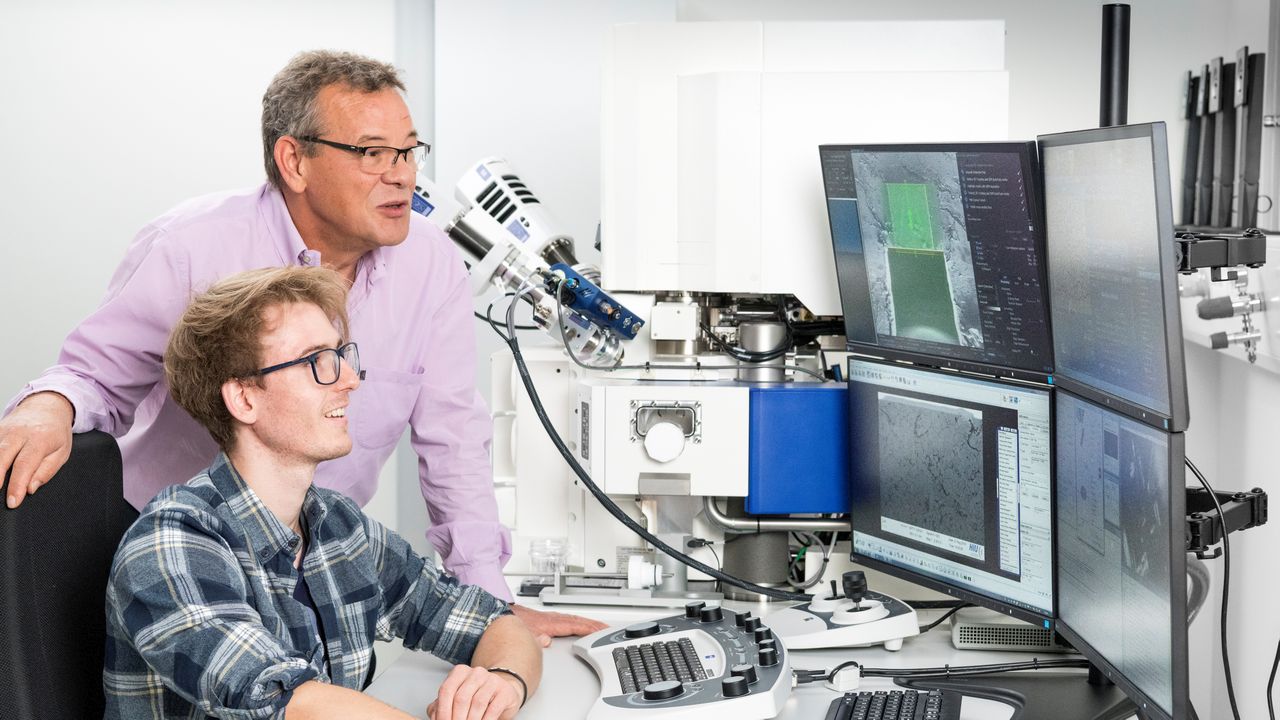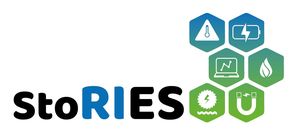
The member states of the European Union (EU) plan to achieve climate neutrality by 2050. This will not only require extended use of renewable energy sources, but also investments in energy storage systems. StoRIES, a new European research consortium, has now been established to accelerate their development. It is coordinated by Helmholtz Institute Ulm (HIU) that was founded by Karlsruhe Institute of Technology (KIT) and Ulm University.
In December 2019, the European Commission presented the "European Green Deal" to reach its climate goals. The focus lies on the energy sector that is planned to be transformed to enable power production from renewable energy sources. However, this alone will not be sufficient, says Professor Stefano Passerini, Director of HIU: "To use the fluctuating renewable energy sources of wind and solar power on a large scale, we will need the corresponding energy storage systems." For this reason, the "Green Deal" also includes coordinated research and development work in Europe, among others in the new research consortium StoRIES (Storage Research Infrastructure Eco-System). It will enable researchers from all over Europe who have specialized in different fields to pool their knowledge and work together on hybrid energy storage technologies in close cooperation with industry. "We want to accelerate development of new, innovative, and mature storage solutions and have created a joint ecosystem for this purpose," Passerini says. And the coordinator of StoRIES continues: "Pooling of know-how opens up often underestimated synergies. The "European Green Deal" presents us challenging homework that can only be done together." On November 1, 2021, work will start officially.

Accelerated Development with Smart Methods
The most important technical goal of StoRIES is the development of future energy storage systems of all kinds. The research consortium will mainly focus on hybrid storage systems. "We will need powerful, persistent, sustainable, and inexpensive solutions," Dr. Myriam Gil Bardají says. The science manager coordinates the activities of the European Energy Research Alliance (EERA) at KIT and was involved in the establishment of StoRIES. "At the moment, however, no energy storage technology is sufficiently flexible to meet all these criteria. It will therefore be necessary to combine technologies. In this way, we will benefit from advantages and compensate drawbacks."
Joint access to first-class research infrastructures and services will remove research obstacles and push innovation. Research is aimed at improving material properties for current and future applications and optimizing hybrid energy storage systems. "We also work on reducing development times for new technologies by a factor of ten," says Dr. Holger Ihssen from the Brussels Office of the Helmholtz Association that supported the launch of the new research consortium. "We also want to accelerate commercialization of new innovations for renewable energy technologies to become competitive much faster." This will be achieved by the use of modern supercomputers, automation technologies, and artificial intelligence (AI) for specific development of materials suited for energy storage systems. In addition, StoRIES will analyze sociotechnical and ecological aspects. "To reduce environmental impacts, the new storage technologies will be optimized in terms of resource consumption and recyclability from the very beginning," Ihssen points out.
Transdisciplinary Education of Tomorrow's Specialists
The new alliance of research and industry will also assume responsibility for the education of the new generation of researchers, engineers, and specialists. Apart from courses for companies, universities, and young scientists, training on ecological, legal, economic, and social aspects of energy storage systems will be offered. "For the energy transition to be successful, we will not only need adequate technologies, but also an understanding of non-technical aspects, such as public approval, legal framework conditions, and economic efficiency," says Dr. Olga Suminńska-Ebersoldt, science manager at HIU and one of the initiators of StoRIES. "Mutual understanding across the borders of the often separate research groups will enable close collaboration." Through education of tomorrow's specialists, the transdisciplinary approach to the development of energy storage technologies will persist even after the termination of StoRIES.
StoRIES: A Unique Ecosystem for Energy Storage Research
The new consortium of institutes of technology, universities, and industrial companies comprises 17 partner institutions and 31 associated partners from 17 countries, who have vast expertise on energy storage technologies (electrochemical, chemical, thermal, mechanical, and superconducting magnetic storage systems). Members of the European Energy Research Alliance (EERA) and the European Association for Storage of Energy (EASE) form the core of the new ecosystem. The European Commission funds StoRIES with about EUR 7 million for initially four years under the Horizon 2020 program. (mhe)
Further information: www.eera-energystorage.eu/stories.html
About the Helmholtz Institute Ulm
The Helmholtz Institute Ulm (HIU) was established in January 2011 by Karlsruhe Institute of Technology (KIT), member of the Helmholtz Association, in cooperation with Ulm University. With the German Aerospace Center (DLR) and the Center for Solar Energy and Hydrogen Research Baden-Württemberg (ZSW), two other renowned institutions are involved in the HIU as associated partners. The international team of about 130 scientists at HIU works on the development of future energy storage systems for stationary and mobile use.
Find more about HIU at https://hiu-batteries.de/en/
More about the KIT Energy Center: https://www.energie.kit.edu/index.php
Being "The Research University in the Helmholtz Association", KIT creates and imparts knowledge for the society and the environment. It is the objective to make significant contributions to the global challenges in the fields of energy, mobility, and information. For this, about 9,600 employees cooperate in a broad range of disciplines in natural sciences, engineering sciences, economics, and the humanities and social sciences. KIT prepares its 23,300 students for responsible tasks in society, industry, and science by offering research-based study programs. Innovation efforts at KIT build a bridge between important scientific findings and their application for the benefit of society, economic prosperity, and the preservation of our natural basis of life. KIT is one of the German universities of excellence.






